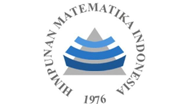Ruin Probability Model for Disaster Insurance Companies: A Systematic Literature Review
Abstract
Keywords
Full Text:
PDFReferences
C. Husna, R. Firdaus, E. Wardani, and S. R. Jannah, “Disaster preparedness among disaster management agency officers: a study from rural and urban areas in Aceh, Indonesia,” Int J Disaster Resil Built Environ, vol. 13, no. 4, pp. 484–497, Aug. 2022, doi: 10.1108/IJDRBE-02-2021-0015.
S. Protschky, “Disaster in Indonesia: Along the Fault Line toward New Approaches,” GeoHumanities, vol. 7, no. 2, pp. 647–655, 2022, doi: 10.1080/2373566X.2021.1896373.
A. Fadhillah, M. Glorino, R. Pandin, and T. Koesbardiati, “Analyzing Forest and Land Fire Disaster Prevention Programs in Riau, Indonesia,” Qubahan Academic Journal (QAJ), vol. Vol.3, no. No.4, 2023, doi: 10.58429/Issn.2709-8206.
W. Wicaksono, I. Desportes, and J. Sopaheluwakan, “Disaster cultures and the Indonesia Tsunami Early Warning System: (mis) alignments revealed by the 2018 non-tectonic tsunami in Labuan,” Australian Journal of Emergency Management, vol. 39, no. 1, pp. 34–40, 2024, doi: 10.47389/39.1.34.
H. I. Qadriina, H. Herdis, and B. Aryo, “Social capital of disaster-affected communities in post-disaster conditions: A case study of the Cianjur Earthquake, West Java, Indonesia, 2022,” Disaster Advances, vol. 17, no. 5, pp. 1–8, May 2024, doi: 10.25303/175da0108.
A. Purwanto, Rustam, Eviliyanto, and D. Andrasmoro, “Flood Risk Mapping Using GIS and Multi-Criteria Analysis at Nanga Pinoh West Kalimantan Area,” Oct. 13, 2022, Gadjah Mada University. doi: 10.22146/IJG.69879.
J. Zhang, “Blended insurance scheme: A synergistic conventional-index insurance mixture,” Insur Math Econ, vol. 119, pp. 93–105, Nov. 2024, doi: 10.1016/j.insmatheco.2024.08.002.
R. Feng, M. Liu, and N. Zhang, “A unified theory of decentralized insurance,” Insur Math Econ, vol. 119, pp. 157–178, Nov. 2024, doi: 10.1016/j.insmatheco.2024.08.008.
H. H. A. Aboul Ela, “A Novel Hybrid ANFIS-NARX and NARX-ANN Models to Predict the Profitability of Egyptian Insurance Companies,” Statistics, Optimization and Information Computing, vol. 12, no. 6, pp. 1934–1955, Nov. 2024, doi: 10.19139/soic-2310-5070-2104.
S. Sukono et al., “Determination of the natural disaster insurance premiums by considering the mitigation fund reserve decisions: An application of collective risk model,” Decision Science Letters, pp. 211–222, 2022, doi: 10.5267/j.dsl.2022.4.002.
M. Feofilovs, A. J. Pagano, E. Vannucci, M. Spiotta, and F. Romagnoli, “Climate Change-Related Disaster Risk Mitigation through Innovative Insurance Mechanism: A System Dynamics Model Application for a Case Study in Latvia,” Risks, vol. 12, no. 3, Mar. 2024, doi: 10.3390/risks12030043.
J. M. Mol, W. J. W. Botzen, and J. E. Blasch, “Risk reduction in compulsory disaster insurance: Experimental evidence on moral hazard and financial incentives,” Journal of Behavioral and Experimental Economics, vol. 84, Feb. 2020, doi: 10.1016/j.socec.2019.101500.
K. Ohori, “Ruin probability on storm and flood disaster risk finance in multiple railway businesses,” Journal of Japan Society of Civil Engineers, vol. 7, no. 1, pp. 150–165, 2019, doi: 10.2208/JOURNALOFJSCE.7.1_150.
Kalfin, Sukono, S. Supian, and M. Mamat, “Model for Determining Insurance Premiums Taking into Account the Rate of Economic Growth and Cross-Subsidies in Providing Natural Disaster Management Funds in Indonesia,” Sustainability (Switzerland), vol. 15, no. 24, Dec. 2023, doi: 10.3390/su152416655.
A. Pothon, P. Gueguen, S. Buisine, and P.-Y. Bard, “California earthquake insurance unpopularity: The issue is the price, not the risk perception,” Natural Hazards and Earth System Sciences, vol. 19, no. 8, pp. 1909–1924, 2019, doi: 10.5194/nhess-19-1909-2019.
S. Ma and J. Jiang, “Discrete dynamical Pareto optimization model in the risk portfolio for natural disaster insurance in China,” Natural Hazards, vol. 90, no. 1, pp. 445–460, 2018, doi: 10.1007/s11069-017-3053-6.
H. Reed, “Actuarial Ruin Theory,” 2022. United States: University of Puget Sound.
I. Hamidah, Sriyono, and Hudha Muhammad Nur, “A Bibliometric Analysis of Covid-19 Research Using Vosviewer,” Indonesian Journal of Science & Technology, vol. 5, no. 2, pp. 209–216, 2020.
A. Thakuria and I. Chakraborty, “A Bibliometric review on Information Seeking Behaviour research literature in Library and Information Science using HistCite and VOSviewer,” 2021. [Online]. Available: https://digitalcommons.unl.edu/libphilprac
S. H. H. Shah, S. Lei, M. Ali, D. Doronin, and S. T. Hussain, “Prosumption: bibliometric analysis using HistCite and VOSviewer,” Kybernetes, vol. 49, no. 3, pp. 1020–1045, Feb. 2020, doi: 10.1108/K-12-2018-0696.
M. Dubyna, O. Popelo, N. Kholiavko, A. Zhavoronok, M. Fedyshyn, and I. Yakushko, “Mapping the Literature on Financial Behavior: a Bibliometric Analysis Using the VOSviewer Program WSEAS TRANSACTIONS on BUSINESS and ECONOMICS,” Wseas Transactions on Business and Econimic, vol. Volume 19, 2022.
B. V. Nurdin, S. S. Hutagalung, Yulianto, R. C. Kurniawan, and D. Hermawan, “Bibliometric Analysis on Governance Index Topics Using Scopus Database and Vosviewer,” in Journal of Physics: Conference Series, IOP Publishing Ltd, Jun. 2021. doi: 10.1088/1742-6596/1933/1/012047.
S. Yayu Ninglasari, “Mapping the Cash Waqf Literature Based on Web of Science and VOSviewer: A Bibliometric and Visualization,” 2021. [Online]. Available: https://digitalcommons.unl.edu/libphilprac
H. Soegoto, E. S. Soegoto, S. Luckyardi, and A. A. Rafdhi, “A Bibliometric Analysis of Management Bioenergy Research Using Vosviewer Application E I N F O Soegoto et al., A Bibliometric Analysis of Management Bioenergy Research Using… | 90,” Indonesian Journal of Science & Technology, vol. 7, no. 1, pp. 89–104, 2022, doi: 10.17509/ijost.v7i1.
A. Kirby, “Exploratory Bibliometrics: Using VOSviewer as a Preliminary Research Tool,” Publications, vol. 11, no. 1, Mar. 2023, doi: 10.3390/publications11010010.
D. Moher, A. Liberati, J. Tetzlaff, and D. G. Altman, “Preferred reporting items for systematic reviews and meta-analyses: The PRISMA statement,” International Journal of Surgery, vol. 8, no. 5, pp. 336–341, 2010, doi: 10.1016/j.ijsu.2010.02.007.
E. Stovold, D. Beecher, R. Foxlee, and A. Noel-Storr, “Study flow diagrams in Cochrane systematic review updates: An adapted PRISMA flow diagram,” 2014, BioMed Central Ltd. doi: 10.1186/2046-4053-3-54.
F. Firdaniza, B. N. Ruchjana, D. Chaerani, and J. Radianti, “Information Diffusion Model in Twitter: A Systematic Literature Review,” Information (Switzerland), vol. 13, no. 1, Jan. 2022, doi: 10.3390/info13010013.
M. J. Page et al., “The PRISMA 2020 statement: An updated guideline for reporting systematic reviews,” Mar. 29, 2021, BMJ Publishing Group. doi: 10.1136/bmj.n71.
O. Ellegaard and J. A. Wallin, “The bibliometric analysis of scholarly production: How great is the impact?,” Scientometrics, vol. 105, no. 3, pp. 1809–1831, Dec. 2015, doi: 10.1007/s11192-015-1645-z.
N. Jan van Eck and L. Waltman, “VOSviewer Manual version 1.6. 15,” 2020. Universiteit Leinden.
Riaman, Sukono, S. Supian, and N. Ismail, “Mapping in the Topic of Mathematical Model in Paddy Agricultural Insurance Based on Bibliometric Analysis: A Systematic Review Approach,” Apr. 01, 2022, MDPI. doi: 10.3390/computation10040050.
T. Purwandari, Y. Hidayat, and R. A. Ibrahim, “Development of the Black–Scholes Model for Determining Insurance Premiums to Mitigate the Risk of Disaster Losses Using the Principles of Mutual Cooperation and Regional Economic Growth,” Risks, vol. 12, no. 7, 2024, doi: 10.3390/risks12070110.
Z. Bleemer and W. van der Klaauw, “Long-run net distributionary effects of federal disaster insurance: The case of Hurricane Katrina,” J Urban Econ, vol. 110, pp. 70–88, Mar. 2019, doi: 10.1016/j.jue.2019.01.005.
A. Bhattacharyya and M. Hastak, “Empirical causal analysis of flood risk factors on U.S. flood insurance payouts: Implications for solvency and risk reduction,” J Environ Manage, vol. 352, 2024, doi: 10.1016/j.jenvman.2024.120075.
K. French and C. Kousky, “The effect of disaster insurance on community resilience: a research agenda for local policy,” Climate Policy, vol. 23, no. 5, pp. 662–670, 2023, doi: 10.1080/14693062.2023.2170313.
A. Duqi, D. McGowan, E. Onali, and G. Torluccio, “Natural disasters and economic growth: The role of banking market structure,” Journal of Corporate Finance, vol. 71, 2021, doi: 10.1016/j.jcorpfin.2021.102101.
Z. Bleemer and W. van der Klaauw, “Long-run net distributionary effects of federal disaster insurance: The case of Hurricane Katrina,” J Urban Econ, vol. 110, pp. 70–88, 2019, doi: https://doi.org/10.1016/j.jue.2019.01.005.
DOI: http://dx.doi.org/10.30829/zero.v9i1.24371
Refbacks
- There are currently no refbacks.

This work is licensed under a Creative Commons Attribution-ShareAlike 4.0 International License.
Publisher : Department of Mathematics Faculty of Science and Technology Universitas Islam Negeri Sumatera Utara Medan | |
✉️ Email: zero_journal@uinsu.ac.id 📱 WhatsApp:085270009767 (Admin Official) | |
 |  |  |  |  |



